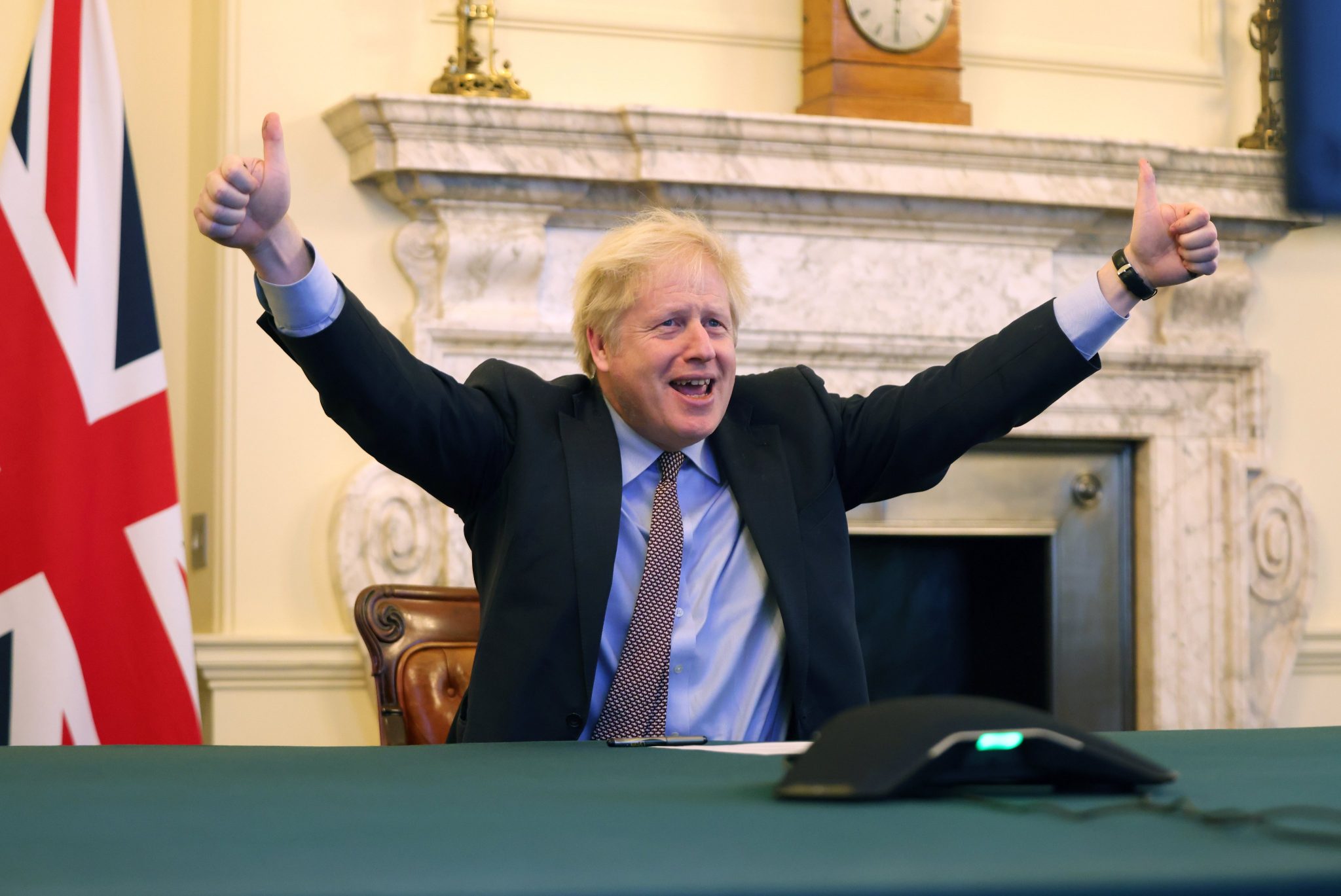Skift Take
Friends again, with trading and security topping the new Brexit accord. But travel businesses with a European presence will be examining the fine print as questions remain over borders.
It was cutting it fine, but a long-awaited UK-EU trade deal was finally agreed on Thursday in Brussels, closing the chapter on a nearly five-year-long saga that hung like a cloud of uncertainty over the travel industry.
The details in the 1,500-page document have yet to be made public, but the headline so far is the new accord means there will be no tariffs on goods when they cross borders, which will keep down the cost of trade. There are also no quota limits.
Critically for the travel industry, it avoids a much-feared “hard Brexit” that would have seen the UK quitting the European Union without a withdrawal agreement or a framework for a future relationship in place. Trading would have reverted to World Trade Organization terms.
If there’s one thing markets don’t like, less than a pandemic at least, it’s uncertainty. Securing a deal before the end of the year offers some reassurance going into 2021.
As well as trading, this deal means the UK and EU will continue to work together on areas such as transport, climate change, energy and security.
However, there will be uncertainty over how tourism will operate seamlessly between the countries, as border checks will change. Freedom of movement ends, and with it a new points-based immigration system.
UK citizens will now need a minimum of six months validity on a passport that is less than 10 years old to travel within the EU from January 1, 2021. The UK will also no longer be subject to the European Court of Justice.
Preparing for Open Skies
In terms of aviation, it’s unsure how new border rules will impact airline operations in the long term. “Whatever the outcome of the Brexit negotiations, we will continue to fly you to your destination,” British Airways has previously stated.
The accord follows the U.S. and the UK formally signing an open skies agreement allowing unlimited flights between the two countries. The new deal applies from January 1 when the UK will no longer be part of the U.S.-EU open skies agreement.
Airline ownership structures suddenly become a lot more complicated. British investors will no longer be classed as EU investors, raising questions for those carriers that have a majority-UK shareholder base, as well as EU-licensed carriers.
The Air Charter Association said it welcomed today’s announcement of a UK-EU trade deal. “Aviation transcends borders, links communities, drives trade and connects families, friends and colleagues,” it said.
Hospitality & Tourism
Perhaps one of the biggest blows for non-EU visitors tourists heading to the UK will be the scrapping of value-added tax (VAT) free shopping. They’ll no longer be reimbursed for most of the 20 percent VAT they pay.
And passengers traveling from the UK to non-EU countries will no longer be able to buy tax-free goods such as electronics and clothing at airports.
However, British passengers traveling to EU countries will be able to take advantage of duty-free shopping from January 2021, the UK government has said, bringing its approach to the EU in line with the rest of the world.
The UK’s HM Revenue & Customs has also said VAT charged on holidays through the Tour Operator Margin Scheme (TOMS) on travel outside of the UK will be zero rated.
Meanwhile, Brexit hasn’t dented Hyatt’s expansion appetite within Europe. The hotel group will add more than 20 hotels to its 63-site European estate, according to reports.
Some Relief for Business Travel
The main benefit for business travel will be that a trade deal, without tariffs or quota, has been struck.
“This is positive news and provides some sense of certainty,” said Martin Ferguson, vice president of public affairs, American Express Global Business Travel. “A tariff and quota-free arrangement limits trade barriers, which helps businesses plan for the future. We are still poring over the detail, but the accord should lessen the risk of disruption to seamless travel between the UK and Europe.”
However, the UK will be leaving EU student exchange programme the Erasmus Programme. As a result, there’ll be less freedom for students, and teachers, who would have previously benefitted from long-term permits. The Department for Education said the government remains “committed to international education exchanges, both with the EU and beyond.”
Overall, the UK will remain an attractive tourism market.
It has the fourth largest international travel spend worldwide, with especially the EU benefiting from a strong drive from UK residents to travel beyond their country’s borders. Meanwhile, the UK is the fifth largest destination for travelers, according to Skift Research’s UK Traveler Profile and Key Statistics: The Brexit Effect report.
“For our citizens and businesses a comprehensive agreement with our neighbour, friend and ally is the best outcome,” said Charles Michel, president of the European Council. “Over the past years the EU has shown unity and determination in its negotiations with the UK. We will continue to uphold the same unity. These have been very challenging negotiations but the process is not over.”
European Union ambassadors will meet on Christmas Day to review the post-Brexit trade, while Britain’s parliament will vote to approve it on December 30.
Brexit turned into one of the most divisive developments in the UK’s recent history. The deal may be done, but travel is far from immune to the impacts of a post-Brexit world.
For more of Skift’s Brexit coverage, go here.
The Daily Newsletter
Our daily coverage of the global travel industry. Written by editors and analysts from across Skift’s brands.
Have a confidential tip for Skift? Get in touch
Tags: boris johnson, brexit, european union, france, united kingdom
Photo credit: Boris Johnson tweeted "The deal is done" on December 24. Twitter/@BorisJohnson
